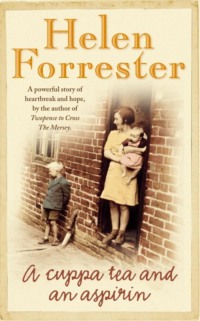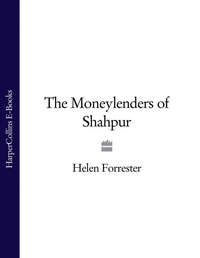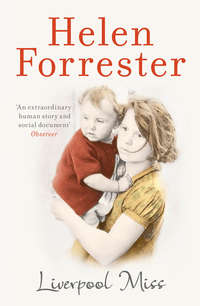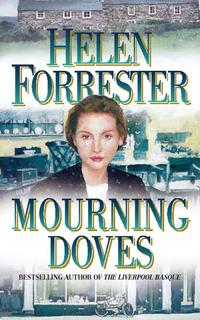
Полная версия
Madame Barbara
He and his mother had lifted the bench, on which they had been sitting for most of their incarceration, to a spot under the window. While Michel looked the other way, Madame Benion shyly divested herself of everything except her black stockings and shoes and her shift.
Michel had never seen his mother naked, so it was with embarrassment that he made several efforts to lift her into the window aperture; it was difficult, while facing him, for her to slide in feet first, though she kept her legs straight and held her arms high over her head, like a diver preparing to plunge.
They did finally manage the manoeuvre; and with further agony of mind he watched her face mirror the pain of her naked flesh sliding through such a rough wall.
There was a moment, when she was far enough through to have her legs dangling out of the other side, that he feared she was wedged. She used her hands, however, to push herself onward; and she cried out as the skin on her stomach and on her bottom was badly scraped by the cruel stones of the long narrow aperture through which she had to force herself.
She finally flipped out of the space, and he heard her call that she had fallen without breaking anything and would rest for a little while. He anxiously pushed her clothes out to her.
It was surprisingly quiet outside, and Madame Benion, so brave as long as her son could see her, crouched at the foot of the wall and cried bitterly. She was bleeding from numerous scratches and grazings. Her stockings were torn and her knees, elbows and buttocks were bruised and raw.
As she finally drew on her petticoat and skirt and put on her black blouse, once more catching her hand on a piece of glass still embedded in the serge of her skirt, she wondered what she had done in her life to deserve such misery. As she dressed she looked anxiously around her.
Through smoke and dust driven by the wind, she could see that her house was a ruin, as were the barn, the hen houses and brooders and their runs. Where the apple trees had been was a series of stumps.
Then she became aware of the bodies in various uniforms – or rather, shreds and pieces of them – of a smoking tank not too far away, of something that looked like meat spread near it. She shuddered.
She wondered if there was anybody out there still alive.
‘Are you all right, Maman?’ came an anxious enquiry from the hole in the wall.
She took a large breath and made herself shout cheerfully, ‘Yes.’ Then she added, ‘First, I’m going to look to see what’s wedging the door.’
‘Bless you, Maman.’ Michel began to feel a little relieved.
Heaps of rubble and a teetering kitchen chimney above it made the door difficult to approach.
Very cautiously, Madame Benion mounted the pile of debris. It slipped and slithered under her. She froze.
Yet the problem was so simple. It looked as if the unlocked back door had been swung off its hinges by a blast. It lay across the garden path, one corner firmly pressed against the door of the outhouse, the other corner against the stone back doorstep. Though there was a scattering of debris on it, it was not deeply buried.
Very carefully Madame Benion turned her head. She was looking for something she could use as a walking stick to help to balance herself. Nothing offered.
While the sound of battle growled on in the distance and flashes in the sky told of continuing aerial combat, she stood contemplating the problem. Then she kneeled down and crawled slowly across the pile, testing every stone before she put down knee or hand to go forward. Her thick long skirt, though an impediment, was painstakingly heaved forward each time she moved a knee, and it saved her already lacerated skin from further serious cuts. She was, however, crying with pain by the time she found a steady footing on the door itself.
Michel heard her and tried again to push the cave door open. The fallen house door wobbled under her.
‘Wait,’ she said sharply, and then as he obviously did not hear her clearly enough, she shrieked almost hysterically, ‘Wait, can’t you?’
Subdued, he waited.
She swiftly began to clear the debris. Whatever was not heavy, she threw as far as she could, so as not to disturb the pile over which she had climbed. On the other side of her, a sliver of pathway was bare before the commencement of a further pile of treacherous stones and broken beams; it might just give sufficient room to push the door to that side, she decided.
Some of the stones from the house walls were heavy, and these she laid carefully onto the slithery piles, hoping that she would not set off a cascade of debris back onto the door.
Finally, she had cleared everything up to the outhouse door. She was so exhausted that she prayed to the dear Virgin that she would not die before she got her beloved Michel out.
Swaying on her feet, she now very carefully considered how to move the door. Finally, she staggered the length of it to the outhouse.
‘Michel,’ she shouted.
‘Yes, Maman.’
‘Be ready – when I shout – to push hard and squeeze right through. Use the mallet, if necessary.’
‘Exactly what are you going to do?’
She explained how the unhinged house door was the wedge. Her voice was hoarse from dust, from exhaustion, from simply having to shout.
‘Don’t touch your door for a moment. Let it shut entirely to give me leeway. I’m going to try to lift the corner of the back door – it’s pressed against the rise of the back doorstep – so that it will clear the step. Once I shout, you do everything you can to get your door ajar.’
The first time she tried, she could not lift the corner. The damp, muddy grass seemed to suck the heavy wood down. She paused for a moment, and then with every scrap of strength she had she gave a frantic heave.
It lifted.
‘Push!’ she shrieked.
The door of the outhouse moved, as Michel pushed it from the inside.
‘Push!’ she screamed again.
Suddenly her end of the door jumped in her hands and slid upwards onto the second step of the house. She instinctively released it, and it bumped heavily down onto the top of the second step.
‘Push.’
The corner of the door slid unwillingly across the step, wedging again when it hit the sill of the gaping house doorway. It was sufficient, however, to give space for Michel to squeeze out of his prison.
As he emerged, his mother collapsed.
‘Maman,’ he gasped, as she fell against the house wall.
Weak with relief, he stood for a second leaning against the outside of the sturdy little outhouse; then he stumbled towards her.
At first, he thought the effort had killed her. He burst into tears, as he tenderly laid her on top of the fallen door, the only clear spot. ‘Maman!’
It seemed an eternity before she opened her eyes, to observe her younger son on his knees before her, crying like a child.
It took a moment or two more to realise where she was and what had happened. She smiled weakly at him.
‘We did it!’ she whispered.
He smiled back at her.
Amid the total destruction of their home, he knew that nothing really counted except that they had each other.
‘Clever, clever Maman,’ he told her, as he pushed back the thin grey hair from her filthy, bleeding face.
They lay exhausted under the shadow of the teetering chimney for some time. Then Michel said, ‘I’ll try to get into the kitchen to get some food.’
‘Mais non!’ she responded forcefully. ‘You haven’t yet looked at it. See, the roof is broken in.’ She glanced above her. ‘And this wall is threatening to come down. We must move – very carefully, very softly.’
He raised himself on his elbow, and glanced around him.
He understood the danger immediately.
As, very cautiously, he got up and helped his mother to her feet, he was dumbfounded by the destruction which surrounded them. Aghast, he stared at it in disbelief.
He finally whispered to his trembling mother, ‘Maman, what are we going to do? What can we do?’
But she could not answer him. What had happened to victory, to liberation? she wondered in dazed amazement. Here was no victory: it was yet another defeat.
Chapter Four
As Michel and his mother stood shakily in what had been the vegetable patch, their ears eased slightly and they became more aware of the high-pitched shriek of shells directed over their heads at the near distance, where heavy gunfire made a steady roar. Occasionally, through the general cacophony, they caught the distant screams and shouts of troops in hand-to-hand combat, while high in the sky planes dived purposefully towards the sound of battle. The horizon was flushed with fires.
Both of them were so covered with dust – faces, hair, hands, clothing all blackened – that they resembled statues carved from coal. In addition, amid the grime, Madame Benion’s face was marked by copious tears and drying blood from abrasions on her forehead and one cheek.
Barely able to stand upright, together they surveyed, aghast, the utter decimation of their farm. They imagined, from the flushed skyline, the further destruction still being wreaked on the hapless countryside.
Two dead Germans, one decapitated, lay nearby in a churned-up hen run. A burned-out tank stood, still smoking, amid the stark skeleton of the barn. Even the apple trees had been blasted practically out of existence. The stable, where their horse had lived, the pigsty and, worst of all, the hen coops, were piles of smouldering wood; and from them, as from the tank, came the nauseating odour of cooked meat and burned feathers, mixed with the smell of death from human corpses. Michel sniffed and reckoned that there were other dead nearby.
Nauseated, the Benions swayed unsteadily on their feet, overwhelmed by sickening terror. While shells continued to whistle over their heads and the heavy gunfire persisted on the horizon, they were unable to move further themselves.
From low in the sky, through the dust, they saw that a few German fighter planes were rising to challenge a further wave of Allied bombers.
Michel pushed his mother to the ground, close to the protection of the wall of the storeroom.
‘We could go back into the cave,’ he shouted into her ear. But she feared being shut into it again, and yelled passionately back, ‘Non! Non!’
As they lay with eyes closed, Michel realised that the naval guns from the coast now seemed to have altered their range to a setting to the south-east of this little homestead. Frequently shrapnel hissed to the ground, but the Benions barely heard it. The dogfights above them had also shifted further away.
Michel’s instinct was to flee, to get out of this frightful carnage. But where could they go?
Both of them were much too panic-stricken to consider that, amid the chaos, there might be wounded in need of help. Or if they did, they were past caring; the wounded were unlikely to be French.
As Madame Benion lay with her unscraped cheek close against the earth that had nourished her for most of her life, she found it unbelievable that she could be the innocent victim of this outrageous ferocity. She had never thought that the Allies would, perforce, destroy the French countryside as they tried to oust the German Army.
They were both dreadfully hungry and their thirst was acute. They simply lay paralysed, barely able to keep sane, as they shook with fear, fear of the conflict still being waged overhead, fear of being attacked by equally scared, furious German soldiers that might still be around.
As they tried to gather themselves together, a further scarifying realisation broke in upon them – that without home or land they might as well be dead. Unless their disorganised Government helped them, they had no future except starvation, even if they survived this terrible battle.
In the colossal racket of the night it had been impossible to communicate properly; they had simply clung together and prayed. Now, in the warm sunlight, their throats dry and dusty, they mouthed words at each other. Both turned instinctively to look towards where the well should be, but there remained only mud and a trace of its round wall. They glanced back at each other in despair.
As they became steadier, the depth of their loss was further borne in on them. Everything that, as a family they had worked to create through generations was gone, obliterated. The Germans had been unmerciful predators; but this complete loss, when freedom was so near, seemed to both to be the cruellest blow of all.
Michel’s brave little mother again wept helplessly, the tears making more white streaks through the dust on her cheeks.
Michel thought his heart would break.
As they surveyed the ruin of their lives the terrifying naval guns suddenly ceased firing, though flights of Allied planes continued to sweep overhead.
Michel did not care whether the planes were bombers or fighters, German or Allied. Instead, he was certain that the price of freedom from the Germans was likely to be starvation.
Madame Benion refused to be left alone while he stumbled over nearby rubble to assess more carefully whether any small structure had survived. Without much hope he called his watchdog, but there was no response.
For the moment, Michel decided not to walk right round their little property to see more exactly if anything whatever could be salvaged. It was a decision, he later realised, that had saved his life; the authorities had subsequently told him that the whole place was sown with unexploded munitions, and mines planted by the Germans as they retreated.
He did climb a part of a wall, despite his mother’s protestations that it would collapse under him. He wanted to look further down the hill towards the home of his fiancée’s parents to see how it had fared. He was not quite certain that the family had stuck with their decision not to evacuate their home, though Monsieur Fortier had, a couple of days before, again discussed leaving.
The remains of the walls of their home were barely visible. It was clear that their holdings had been equally badly damaged. Michel had been thankful that his Suzanne was working in Caen; he had, as yet, no idea of the havoc about to be wreaked upon that ancient city.
His mother was tugging anxiously at his trouser leg, so he jumped down. The Fortiers would have to look after themselves.
Now, as he stood beside his taxi parked in the lane which crossed the cemetery, he silently finished his kick-boxing exercises, which he did daily; waiting in cemeteries was the only period of his busy day during which he was not otherwise occupied. As he did them, he cursed the Boches and his own erratic governments of France. He heaped maledictions upon the political manoeuvring of a United States Government fearfully obsessed with anything savouring of socialism, who used the Marshall Plan to their own advantage, so that it did not help humble French peasants, who might be communistically inclined.
He remembered how he and his mother had dragged themselves through the drying mud to what had been the lane, and had then picked their way down what had been a reasonable gravel road to the village, to seek water and temporary shelter.
On the way, stumbling over the churned-up road, they met small groups of soldiers in British uniform. Though the soldiers looked filthy and exhausted, Michel feared that he would be stopped and questioned. The Britons, however, ignored them; a small male civilian and a weeping old woman, who were obviously as dishevelled as they were, held no terrors for fighting men driven nearly insane by the appalling noise and chaos of battle.
Michel was certain that nearly all of the inhabitants had fled the tiny village a day or two before. Like the road leading to it, it was in ruins and now appeared deserted. Not a groan, not a whimper; not a twitter of a bird, not a dog’s bark. Only the distant roar of battle.
A terrified dusty cat cringed in silence in the corner of a broken wall. Traumatised, it stared unblinkingly at Michel.
Michel pulled off his dirty beret and scratched his equally dirt-laden head. He shouted, and then tried to listen intently.
No response.
Though he still could not hear very well, he mouthed to his mother, ‘Everyone must have left.’ He barely stopped to wonder what had happened to the villagers’ animals, which they must have left behind. He was sure that his own livestock, even his watchdog, tethered near the hen coops, was dead.
A teetering wall crashed suddenly. Madame Benion jumped with fright. She looked as if she would faint.
Michel hugged her closer. ‘Courage, Maman. It seems the Allies are advancing – those soldiers were British. We may find support troops of some kind, who will give us water.’
Though she did not believe him, she gradually steadied.
‘Wait here,’ he ordered. ‘I’ll see if I can find something to eat or drink. There may even be somebody hiding here.’
‘Germans?’
‘No. I mean Claude or Maurice or the Desrosiers.’
He looked along the tiny street for a house not too badly damaged. As he went towards one, his mother, memories of the First World War ever before her, shrieked, ‘Be careful. It may be mined!’
He nodded acknowledgement of the warning, as he paused at the doorless front entrance. Then tentatively he stepped inside.
Five bodies lay in the tiny living room. He knew them. Though the one window had imploded, it was not clear in the half-light how they had died, but the smell of faeces and decay was already strong. They must have been dead for some time.
It could have been concussion, he decided. From the dark stains around them, he adjudged that they had bled. Once more, he felt sick with primeval fear.
He took a large breath and then looked carefully round. Hesitantly, he stepped over the corpses of poor Madame Lefebvre, her father, who had been the village shoemaker, and the three grandchildren. Michel knew the house from many a visit and he went straight to a cupboard at the back of the room. In it, he found a very dry loaf, a jug of milk, which had soured, and some cheese. There was nothing else. He gazed in amazement at the milk, which had, in its heavy pottery jug, survived whatever explosion had killed the family.
He hesitated again. He was well acquainted with the family lying on the floor and would not, for the world, have stolen from them. Then he told himself not to be a fool; they would never have need of bread again. He picked up the loaf and blew the dust off it. The cheese had been in a covered dish and the milk had several layers of butter muslin draped over it; they were not so impregnated with the all-pervading dust.
Balancing the milk carefully, he took the food back to his mother. She was still standing in the middle of the street, a lost soul with nowhere to go.
Afraid of booby traps left by the Germans, they remained standing where they were. They gulped down the whey from the milk and ate the bread and cheese between them.
The food revived them. Desperate to find some safety, they had a hasty consultation, during which they had to continue to speak loudly to each other.
‘We should walk down to Bayeux,’ Michel said. ‘The other day, the postman mentioned that it was taken at the beginning of the invasion – undamaged. I can’t think of anywhere else to get help, can you? And we might find out where Uncle Léon and his boat are.’
Madame Benion agreed. Anything to get out of the hell so quickly created round them.
As they walked slowly along the road leading out of the village, they were greeted, with relief, by four other terrified survivors whom they knew by sight, all rather deaf, each with faltering tales of dead children, ruined homes and ruined farms.
As they proceeded, people emerged, by ones and twos, out of side lanes or from the trampled fields and devastated villages. They were few, most having fled earlier, and fewer still were children. All were bent on reaching Bayeux in an effort to get behind the Allied lines and not be caught again between the opposing armies.
Apart from personal safety, they sought medical help for wounded relations and friends, who were too badly hurt to be moved or who still lay amid the rubble. This made Michel feel guilty that he had not searched the village for wounded French before he left it. The silence had, however, convinced him that there was nobody there. He forgot his impaired hearing.
One demented man demanded that they all turn round and go to his village, in order to dig out his family from the ruins of their home. The frightened little group stopped to argue about this for a few minutes, and then agreed that it would be madness to tramp back through the battlefield again; perhaps be blown up by Allied fire if the Germans managed to mount a counteroffensive. It would be better to press on to Bayeux from whence medical help, ambulances and soldiers who understood land mines – les démineurs – might be sent into the countryside.
They met Allied infantry being moved up to the front in personnel carriers. The procession was closely followed by tanks and Jeeps with a vanguard of motorcyclists, who tried, not always successfully, to push refugees off the roads to make way for the advancing military.
The weary civilians found it difficult to walk on the verge of the road. They struggled through the long wet grass and, occasionally, flung themselves to the ground at the menacing sound of diving aircraft. Though they were equally afraid of mines lying in the undergrowth of the great hedges which often marked the edge of a property, the greenery did give an illusion of cover, when, in the hope of impeding the Allies’ advance, the few planes the Luftwaffe had available swept low overhead to machine-gun all and sundry.
The forlorn little group struggled grimly on, trying not to stumble into the roadside ditch, which had several inches of water in it.
They were twice hastily scattered, however, by a British tank pressing its way through the heavy, deep-rooted hedges and on to the road. They also met a foot patrol of English soldiers with red crosses on their sleeves, which eased its way through the hedgerows from a field behind them.
A little surprised to find civilians whom, they had imagined, would have earlier fled the area, the medics said briefly, in English, that they were checking for wounded. They enquired of the refugees if they had seen anyone, Allied or German, lying hurt; they did not mention French casualties.
Seeing the bewilderment of the refugees at being queried in English, Michel appointed himself interpreter.
Once the soldiers had managed to make themselves understood, they were told sadly in chorus that only the dead had been seen. There were, however, frantic inter-jections that there were French casualties in the villages, for whom the refugees hoped to find help.
The patrol leader, a lance corporal, obviously shaken by their stories, kindly promised to do his best to inform civilian authorities. ‘They’re probably out there somewhere already,’ he said rather helplessly.
‘This is the last call for lunch,’ he added, with an attempt at humour. ‘Most of the wounded has been took in – a few Jerries amongst them.’ And on being asked, he replied cheerfully with all the optimism of a nineteen-year-old that yes, he thought it was true that Bayeux was still standing, undamaged. He turned to his fidgeting patrol and chivvied the men forward. As the group began to move, some of them looked back at the refugees and shouted, ‘Good luck!’
The little group of villagers, trailing behind three people going slightly faster through a deserted hamlet, were horrified by a sudden explosion which blew up those ahead, spattering their remains on those following them. It was the first time that Michel had seen his tough, silent mother so distressed that she vomited.
They were further very shocked and frightened at the sight of small, loose groups of British commandos casually looting the remains of homes, and shooting out windows or booting open shut doors. One soldier came out of a wrecked church, brandishing joyfully a glittering cross from the altar. A stranded car formed a great entertainment to the invaders as they reduced it to wreckage. A terrified horse was used as a target. When the frightened owner protested, he was shoved roughly to one side.







